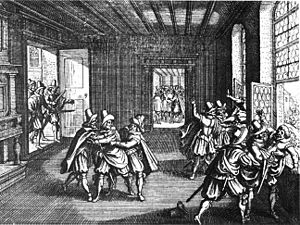
State Crisis and Formation
State formation is the process of the development of a centralized government structure in a situation where one did not exist prior to its development. State formation has been a study of many disciplines of the social sciences for a number of years, so much so that Jonathan Haas writes that "One of the favorite pastimes of social scientists over the course of the past century has been to theorize about the evolution of the world's great civilizations." The study of state formation is divided generally into either the study of early states (those that developed in stateless societies) or the study of modern states (particularly of the form that developed in Europe in the 17th century and spread around the world). Academic debate about various theories is a prominent feature in fields like Sociology.
The state is considered to be territoriality bound and is distinct from tribes or units without centralized institutions.
According to Painter & Jeffrey, there are 5 distinctive features of the modern state:
1) They are ordered by precise boundaries with administrative control across the whole;
2) They occupy large territories with control given to organized institutions;
3) They have a capital city and are endowed with symbols that embody state power;
4) The government within state creates organizations to monitor, govern and control its population through surveillance and record keeping;
5) They increase monitoring over time.


